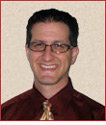 Jarrod Shapiro, DPM
Practice Perfect Editor
Jarrod Shapiro, DPM
Practice Perfect Editor
Mountain View
Medical &
Surgical Associates,
Madras, Oregon
|
Nil Per Os? Or Nil Per Mentis?
I’d like to offer a piece of advice, not only to our student and resident readers, but also our practicing attendings and physicians.
Here’s my little story. A couple of weeks ago, I was consulted in the ER on a patient with a closed, nondisplaced hallux fracture at 2 PM on a Saturday. The patient had eaten a light meal of some soup and an 8 oz glass of water at 8 AM that morning. She then tripped over her dog, fell, and fractured her hallux. I called the on-call CRNA (we don’t have an anesthesiologist at my rural hospital) and informed her I wanted to bring my patient to the OR. After I presented my patient, we proceeded to discuss the patient’s NPO status. The CRNA insisted that the American Society of Anesthesiologists guidelines stated 8 hours NPO were necessary, and we’d have to wait at least two more hours. I relented, assuming the CRNA was the expert. They must know something as simple as the NPO status guidelines, right?
 |
Oct. 21 - 24, 2010 |
|
Las Vegas, NV |
Wrong… I looked up the ASA NPO Guidelines, and I learned something new! Tabulated below are the basic recommendations for NPO status (the document also discusses methods to prevent pulmonary aspiration). It turns out to be more complicated than one might have thought, considering the simplistic level of NPO many of us are taught.
| Preoperative Fasting Type |
Basic ASA Recommendations |
Special Note |
| Clear Liquids |
NPO ≥ 2Hr preop for clear liquids |
Volume less important than type of liquid |
| Breast Milk |
NPO ≥ 4 Hr preop |
|
| Infant Formula |
NPO ≥ 6 Hr preop |
|
| Nonhuman milk |
NPO ≥ 6 hr preop |
|
Solids
Light meal
Heavy meal |
NPO ≥ 6 hr preop
NPO ≥ 8 hr preop
|
Light meal = toast
Heavy meal = fried or fatty foods
|
| Table 1. ASA NPO Guidelines with recommendations by type of oral intake preoperatively. |
|
I was originally taught 8 hours NPO for any food despite type. Later I heard rumblings from others about 6 hours NPO. Then, after my discussion with the CRNA, I started thinking for myself. I did my own research, and answered my own question. This is what we’re supposed to do as physicians. Remember 'life long learners?' Apparently, I’d become lazy and forgotten that important concept.
Unfortunately, though, many of us are trained to practice in certain ways because “that’s the way it’s always been done.” Inject the heel for new patients with plantar fasciitis. Close the skin this way after a bunionectomy. Prescribe Ibuprofen for all ankle sprains. These may or may not be your preferred practice methods, because your trainers did it this way. Why is a preoperative hand scrub three minutes? Is it reasonable to answer, “Because that’s the way I’ve always done it?” No, it’s not.
Here’s my piece of advice: Don’t Believe Everything You’re Told
Residents and students, question everything. There should be a good reason for every decision that’s made in the care of your patients. There may not always be a solid answer — there’s mixed literature about injections for plantar heel pain for instance — but there must always be a better answer than “because I said so.” Challenge your attendings — it’s good for them. For you attendings out there, foster that questioning attitude. In the end, it will make us all better doctors. Nothing by mouth? Or nothing by mind? You decide…
What are your thoughts about this? After reading the eZine, we encourage you to follow up with any additional comments in the PRESENT Podiatry eTalk.
Keep writing in with your thoughts and comments. Better yet, post them in the eTalk forum, where you can get in on the discussion or start one of your own. Best wishes.

Jarrod Shapiro, DPM
PRESENT Practice Perfect Editor
[email protected]
|